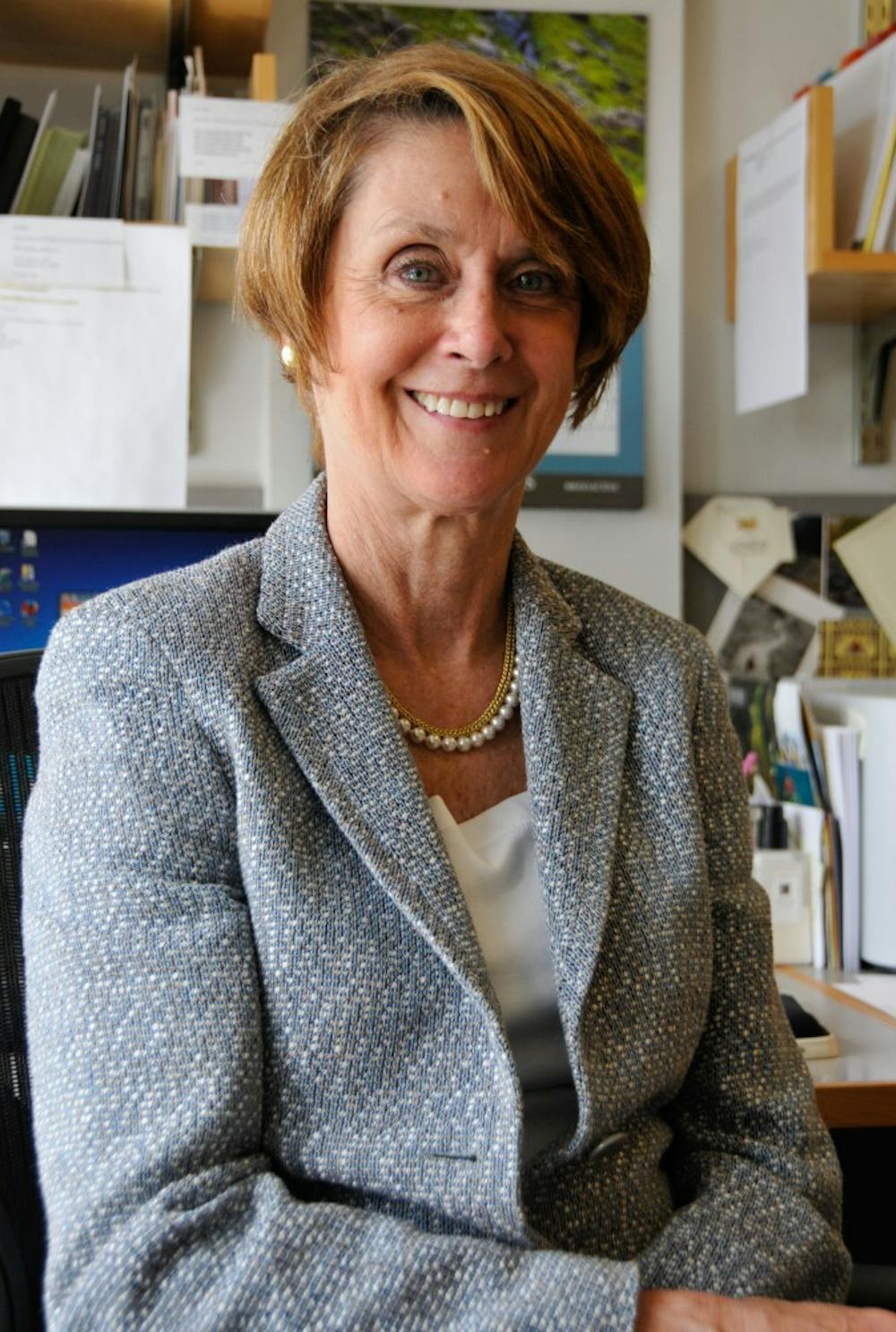Wilson School diplomat-in-residence and Directorof the Scholars in the Nation’s Service Initiative program Barbara Bodine intends to step down at the end of the academic year.
The University is now searching for a director for the SINSI program, which was established in 2006. A job posting indicated the search was posted on the University website on April 7. No posting has been made for Bodine's other role as diplomat-in-residence.
Associate dean for public and external affairs at the Wilson School Elisabeth Donahue said the University is looking for an independent, organized person who has deep understanding of the federal government.
Bodine will be taking a new position as director of the Institute for the Study of diplomacy and distinguished professor in the practice of diplomacy at Georgetown University. She came to the University in 2007.
SINSI is a six-year fellowship offered to five juniors per year. Selected scholars hold government internship positions the summer after their junior year. After graduation, scholars study for a year in the Master in Public Affairs program at the Wilson School, take part in a two-year fellowship with the federal government and then return to the Wilson School for the final year to complete the MPA program.
Bodine served in Kuwait and Iraq as a diplomat and was the U.S. Ambassador to Yemen before coming to the University.
When asked what her reason for stepping down was, she said she thought it was time to move on.
“I think we’ve taken SINSI from essentially a startup to an established program,” Bodine said. “There are times when it’s just appropriate to move on and let somebody else take it to the next phase.”

Bodine added that she found the position at Georgetown fascinating because people are “still in the process of redefining diplomacy” and that she wishes to integrate the work of the Institute for the Study of Diplomacy into her work at Georgetown.
Bodine, who has worked as director of SINSI since she came to the University, said that one of her most memorable experiences was witnessing the program’s profile become stronger.
“In the beginning, when I would be working with the students on their placement, if I said ‘SINSI’ or ‘Scholars in the Nation’s Service Initiative,’ basically the reaction [of government offices] was, ‘What?,’” Bodine said. “Now we get calls from all over the government asking for the SINSI.”
Bodine said she also enjoyed watching the scholars discover the satisfaction of engaging in public service.

“Public service always sounds like a little bit like a burden,” Bodine said. “To [see the students] find out that it’s actually a lot of fun, it’s very satisfying and it’s very important.”
Donahue noted that Bodine was a huge contribution to the program, with her understanding of the federal government and deep care for the students.
“She does an update every year of the SINSI students,” Donahue said. “Even if they have been out [of the program] for a number of years, she knows where they are and what they are doing. I think that personal connection she has with the students is what makes her stand out.”
SINSI scholar Kimberly Bonner ’08 MPA ’12, who did a fellowship in Tanzania, said she was impressed with Bodine’s willingness to know and interact with each scholar.
“When I first returned from Tanzania … I was so impressed by the way she already knew so much about my skills and experience, and was really touched that she took the time to get to know me personally,” Bonner said.
“I think all of us [SINSI scholars] are very supportive and excited for her,” Andrew Kim ’10 MPA ’14 said, noting that Bodine has worked hard in the past years to ensure the program would be self-sustaining even after she left.
Kim said that Bodine was a unique director, and that in searching for her successor it is important to realize that the goal is not to find someone identical to her.
“There are a variety of leaders that could take on the program and make it grow successfully, and continue to carry on the program in a good direction,” Kim said.








